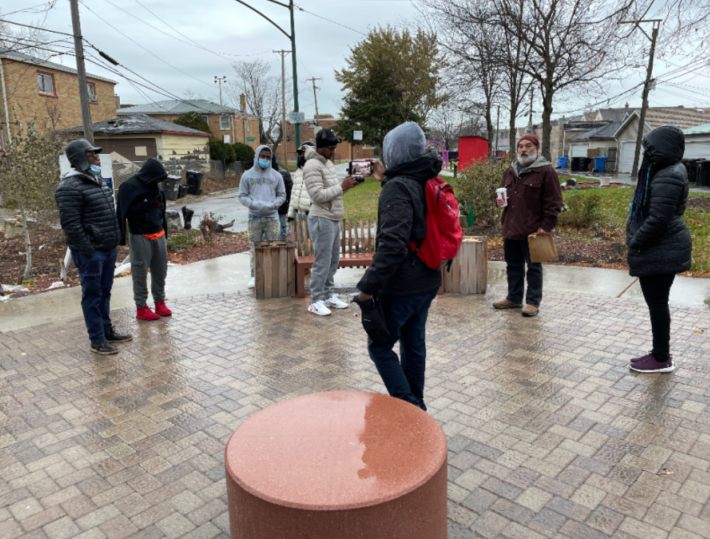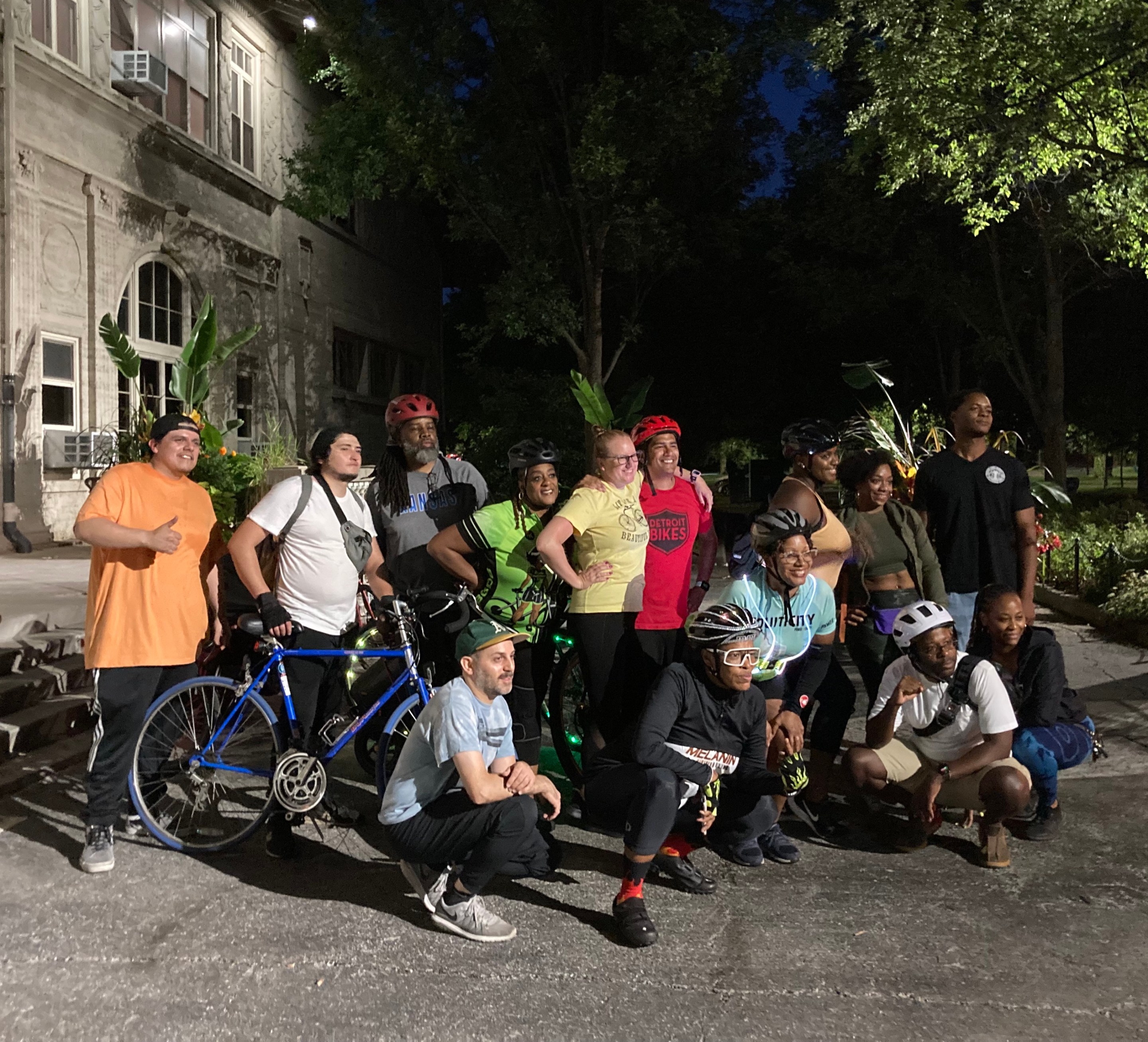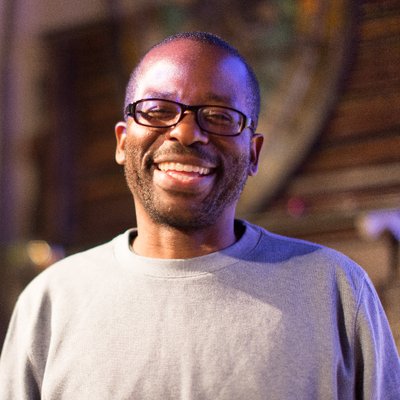2022 has been a big year for the mobility justice organization Equiticity. In May, the group earned IRS 501(c)(3) status, becoming an independent nonprofit. According to president and CEO Olatunji Oboi Reed, the organization's previous fiscal agent, the Black United Fund of Illinois, was a great partner. However, the new nonprofit status gives Equiticity more flexibility for accomplishing its goals.
"When we were able to get our 501(c)(3), that meant that we were now in complete control of our finances, and we have autonomy over how we spend the money," Reed said. "Where we spend the money, it’s just a whole level of independence that cannot be overestimated. It is a tremendous milestone and turning point for Equiticity. For us, after five years, to now be our own IRS 501(c)(3)."
In addition, the new nonprofit has worked on many projects over the past year. Here’s a complete list, based an email update Reed sent:
- Mobility Opportunities Fund: "With an extraordinary gift from ComEd, Equiticity is promoting racial equity and mobility justice by expanding access to climate-friendly modes of transportation in the predominantly Black neighborhood of North Lawndale on Chicago's West Side. Stipends from MOF will help residents purchase conventional bicycles, electric bicycles, electric cargo bikes, and electric vehicles. The program intends to help grow mobility, while also reducing carbon emissions, lowering transportation costs, and improving employment outcomes."
- Community Mobility Rituals: "Our 2022 season of Community Mobility Rituals reached several thousand people and hosted over 75 mobility events, including community bicycle rides, neighborhood walking tours, public transit excursions, group scooter rolls, and open street festivals. We coined the term Community Mobility Rituals to describe mobility events which become normalized and ritualized in neighborhoods. CMRs are designed to increase social cohesion and collective trust at the neighborhood level. Our CMRs are scheduled with a rhythmic frequency (weekly, monthly, or annually), and always free, open to the public, and hyper-local focused. CMRs help neighbors get to know one another, increasing socialization and trust in our neighborhoods, while also decreasing the perceptions of violence. CMRs help people consider how active modes of travel – walking, cycling, transit – fit into a healthy lifestyle and transform communities. When more people bike, walk, shop, and explore parks in our neighborhoods, our streets become more vibrant. More vibrant streets support safer, less violent, and more economically thriving communities. Equiticity's Community Mobility Rituals have attracted partnerships with community based organizations across Chicago. We also secured major financial support from Main Street America, The Chicago Community Trust, Prince Charitable Trusts, Chicago Park District, Lyft, Superpedestrian, REI, and PeopleForBikes."

- BikeForce: "Equiticity’s exciting workforce development program launched this past summer through the generosity of IMC Foundation and Steans Family Foundation. Through a partnership with Afterschool Matters and Collins High School in Chicago's North Lawndale neighborhood, BikeForce trained up a group of young people in the technologies of the emerging transportation revolution (electric vehicles, autonomous vehicles, e-bikes, e-scooters and the associated battery systems and electric motors.) Once proficient in [non-electric] bike repair and [after achieving] familiarity with electrical components inside e-bikes and e-scooters, our BikeForce apprentices will be better prepared for more educational, employment, and entrepreneurial opportunities."
- The Go Hub: Soon Equiticity’s programs and activities will have their very own physical homes in Chicago’s North Lawndale and Bronzeville neighborhoods. With national and local support, Equiticity is growing our staff to transform The Go Hub from vision to reality. Already, we’ve reimagined the traditional mobility hub from focusing exclusively on shared mobility devices and infrastructure, to a more equitable mobility hub model designed to meet the unique transportation needs of Black and Brown residents of low-to-moderate-income neighborhoods enduring severe transportation inequities. Equiticity’s The Go Hub will fully integrate the hardware of traditional mobility hubs with “software” (community programs and strategies to socialize people around the act of mobility) – all positioned in a physical space that serves as a neighborhood welcome center. When bringing these three components together, The Go Hub aims to improve transportation outcomes, as well as environmental, health, safety, and economic outcomes for racially marginalized communities."
- Mobility Justice in Chicago – Research and Advocacy: "From our Biking Where Black research to our recently published Commuting Carless research, we are using both quantitative and qualitative data to better understand the severity of inequities experienced by racially marginalized communities. Our research is designed to inform and support our advocacy work. We are proud to serve as founding members of two impactful Chicago-based advocacy coalitions: the Transportation Equity Network and the Free To Move coalition. With TEN, we are operationalizing racial equity and mobility justice in our region's transportation system. With FTM, we are working to establish racially equitable traffic safety here in Chicago."
According to Reed, there are multiple factors that determine what projects Equiticity will take on. The group asks, will the initiative impact people’s daily lives? Will it impact the policies that are currently in place? Another thing they think about is whether the project fits with the organization’s mission statement.
“We have a clear mission. Equiticity is a racial equity movement," Reed said. "Operationalizing racial equity by harnessing our collective power through research, advocacy, programs, community mobility rituals, and social enterprises to improve the lives of Black, Brown, and Indigenous people in our society. That’s our mission statement. We have to ask ourselves, does this project advance our mission... [or] is it a little bit distracting from our mission? We’ve got to really wrestle with that.”
Another thing that the people at Equiticity have to wrangle with is whether they have the resources to accomplish the project. Though they’ve seen exponential growth over the past six months, they are still a relatively small nonprofit with limited resources. They are unable to do everything.
“One other thing that we ask ourselves is what’s the cost of not doing it? In the event that we don’t do it, will it get done? In any event, if we don’t do it and no one else does it, what’s the cost of that? What are we losing? What impact are we losing? What life outcomes are we not having an impact on if we do not do it and no one else does it?”
Reed credits donations from various sources for enabling the group to do so much this past year. He also said that another factor is timing. About six years ago, when Equiticity was first starting out, very few agencies and white-led organizations were talking about equity in the transportation sector. Now, he said, President Joe Biden is talking about equity. He added that’s not just happening in the White House, but Chicago mayor Lori Lightfoot and other organizations are also talking about equity now.
“And then you got federal dollars," Redd continued. "You got the influx of federal dollars that are coming to cities like Chicago and cities across the country to execute these resources in a way that’s racially equitable. So what that means is that while we’ve been here, we’ve been here. We’ve been here for six years. We are still here now when the resources are beginning to flow. And I believe people appreciate the fact that we were here doing the work without the resources. And now that the resources are here, we are able to advance our work.”
Right now, Equiticity is conducting The Equiticity 2023 Power + Equity Campaign. The annual end-of-year fund drive has been happening for the past four years. It’s currently live and will run until December 31. After raising $65,000 the previous year, Equiticity’s goal for this year is to raise $75,000.
“This money is important to us because it’s what we call unrestricted or is generally operations support where we don’t have to tie it to a specific program," her said. "And that’s critical because as we grow, we have to create infrastructure within our organization to support all of our staff. All of our programming. All the elements that come with a growing organization, like having an account. Having someone manage human resources. Having someone manage marketing and different systems that we use in our organization. For that unrestricted general operating support that comes from our end-of-year campaign helps us to build up that capacity that we need to be an effective, well-managed, well-funded organization.”





